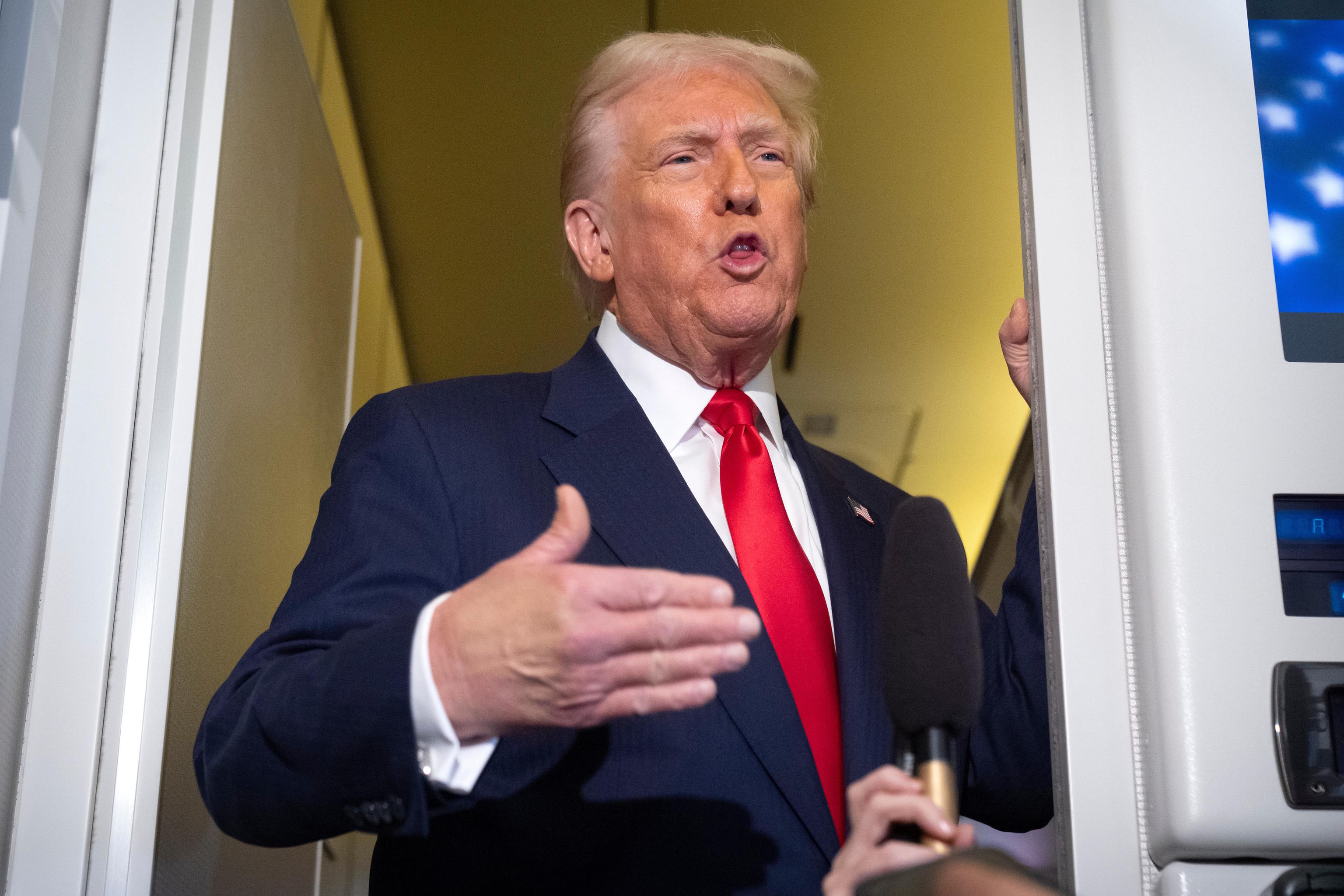The United States will no longer be a refuge for persecuted individuals from around the world. President Donald Trump has made it clear since returning to power that he believes there is too much foreign population in the US, that the "invasion" allowed if not encouraged by his Democratic predecessors has brought poverty and chaos to the country, and that it is his duty and destiny to reverse it. He does this through detentions and deportations, tightly closing the borders, revoking refugee status from hundreds of thousands of Venezuelans, Haitians, or Afghans. And now, in addition, restricting the entry of asylum seekers to recent historical lows.
Trump signed an executive order on the first day of his term suspending the resettlement of most refugees and effectively preventing migrants at the US-Mexico border from seeking asylum. The administration has been working on its new proposal for months, and this Thursday, after the Republican leader's return from his Asian tour, more details were revealed: only 7,500 refugees will be allowed in the fiscal year that began on October 1. The figure, just 5% of the 135,000 admitted in the last year of Joe Biden, will also prioritize white South Africans wishing to settle in North America.
The decision is not a surprise, but the quota is much lower than even asylum organizations feared. Weeks ago, the Executive already had the general outlines ready, but acknowledged that it needed to discuss the matter with Congress. However, the country has been in a forced 'shutdown' since October 1, without funds to finance itself and with tens of thousands of officials at home without pay. Therefore, Trump has decided to skip the step and stated that he will consult with the relevant committees later on.
In June, the White House announced it would end temporary protected status for half a million Haitians. A month earlier, it had done the same with tens of thousands of Afghans. And this month, the Supreme Court authorized the same for 300,000 Venezuelans. In addition to Cubans or Nicaraguans.
The document released today authorizes "the admission of up to 7,500 refugees to the United States during fiscal year 2026 for humanitarian reasons or other national interest reasons." It then stipulates that "slots will be primarily allocated to Afrikaners from South Africa, in accordance with Executive Order 14204, and to other victims of illegal or unfair discrimination in their respective countries of origin."
The measure cites a series of executive orders signed by Trump in recent months, which, for example, require that "refugees undergo the most rigorous identity verification of any category of foreigner seeking admission or entry into the United States", or that "suspends the entry of refugees into the United States, except when the Secretaries of State and Homeland Security jointly determine that their admission is in the national interest and does not threaten the security or welfare of the United States," in addition to specifically noting the "restriction on the entry of certain foreign citizens whose admission would be detrimental to the national interest."
Before the summer, the president decided that the most threatened group at the moment was white South Africans. He even said this in front of South African President Cyril Ramaphosa on May 21, in an encounter not as violent as the one suffered by Ukrainian President Volodymyr Zelensky, but close. Including the screening of a video denouncing a "white genocide" in the country. Ramaphosa did everything he could to deny the existence of a genocide, systematic persecution, and a threat to the white population. He even brought two legendary South African white golfers in his delegation, admired by Trump, to try to convince him in person. But he failed.
The details of the proposal will be fully disclosed on Friday. But in previous versions discussed between the White House and the Department of Homeland Security, it was emphasized that the proposal must include mandatory courses on "American history and values" and "respect for cultural norms." And prioritize those who speak English. Likewise, as reported by the media last month, it was suggested to benefit European citizens who have "been attacked for peacefully expressing their views online against mass immigration" or supporting populist parties allied with Trumpism.
